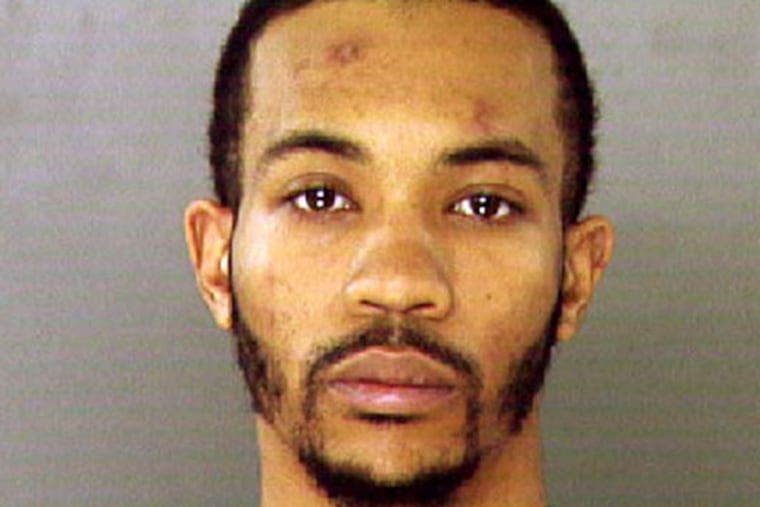Life in prison for Valentine's Day killer
Convicted Valentine's Day killer Shaun Warrick was sentenced to two consecutive life prison terms without parole Thursday after a Philadelphia jury deadlocked on whether he should get the death penalty for killing his ex-girlfriend and her cousin.

Convicted Valentine's Day killer Shaun Warrick was sentenced to two consecutive life prison terms without parole Thursday after a Philadelphia jury deadlocked on whether he should get the death penalty for killing his ex-girlfriend and her cousin.
The Common Pleas Court jury of six women and six men deliberated on a death sentence for about three hours before telling Judge Glenn B. Bronson it could not decide.
On Wednesday, the same jury found Warrick guilty of two counts of first-degree murder in the 2011 shootings of his ex-girlfriend, Tiffany Barnhill, 19, and her cousin Marcedes Ivery, 22.
Under Pennsylvania law, a jury's inability to vote unanimously for death means a default sentence of life without parole. Bronson immediately sentenced the 32-year-old Logan man to two consecutive life terms plus 16 to 32 years for burglary and firearms charges, on which the jury also found him guilty.
Bronson told Warrick it was the longest sentence he could impose: "It's very difficult to find appropriate words to describe your behavior in this case. It was a cowardly, senseless, horrible act, and you truly do deserve to spend the rest of your life in prison."
Warrick did not seem to be listening - his attitude throughout the trial, which began Aug. 13. He did not testify in his defense and declined to speak before sentencing.
Indeed, over the last two days, Warrick seemed to do all he could to ensure a death sentence. Even as his attorney, Jack McMahon, stood before the jurors trying to persuade them to spare his life, Warrick leaned over the defense table and scrawled a common street vulgarity to McMahon on a piece of paper.
Before the jury entered court Thursday, Warrick rejected an offer from Assistant District Attorney Thomas Lipscomb to drop the death penalty in favor of life without parole if Warrick waived all appeal rights.
Warrick refused to allow his mother, who attended every day of the trial, to testify for him, and describe his childhood and background.
And he chose not to testify, saying McMahon had not prepared him or his mother for what to expect at the penalty hearing.
"That is 100 percent a lie, Shaun Warrick," McMahon responded, and then explained to Bronson that Warrick and his mother had rebuffed all attempts by him over four years to plan for the death penalty hearing.
The often-heated exchange between Warrick and McMahon at one point led Bronson to say he believed Warrick was "playing games" and asked one last time if he wanted his mother to testify.
"I don't want that. I don't want anything," Warrick replied.
After the sentencing, relatives of the two cousins said they thought Warrick deserved a death sentence but were satisfied that he would never be free again.
"At least we get some closure," said Ivery's sister, Shantell Murrille, 27.
The bodies of Barnhill and Ivery - each shot multiple times - were found in upstairs bedrooms at Ivery's house in the 5400 block of Rutland Street in Frankford.
Warrick was allegedly incensed because Barnhill broke off their relationship and Ivery was interfering with his efforts to talk to her.
Trial witnesses testified that shortly after 3:30 p.m., Warrick, accompanied by two women, arrived at Ivery's house. While the women waited outside, witnesses said, Warrick kicked in the front door and entered. Gunfire was heard, and Warrick then ran out of the house, tucking something into his pants, and fled with the two women.
Lipscomb urged jurors to condemn Warrick, telling him: "You chose step by step to put yourself where you are today."
McMahon said Warrick, an only child raised without a father, graduated from high school, attended three years at the University of Maryland-Eastern Shore, and was a Division I basketball player.
Warrick had no juvenile criminal record and no previous convictions for violent crime, McMahon said, calling his a "life worth saving."
After the verdict, McMahon said he was "very satisfied that this jury had the compassion to see the case the way I viewed it: an explosion of emotion that was out of his character."